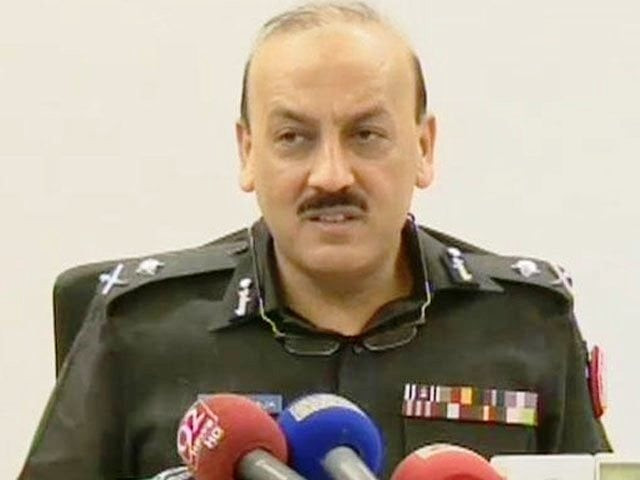Despite losing the battle, Sindh govt decides to continue the war
IG appointment case to be taken to the apex court soon

Sindh IG Allah Dino Khawaja. PHOTO: Express
Pakistan Peoples Party leader and lawyer Farooq H Naek has been assigned the case.
An official in the law department told The Express Tribune that a petition will be filed next week. "We will challenge the paragraph 101 of the case’s judgment, which is contrary to fundamental principles of the law because there is no bar on legislation and decisions made by the executive authority, which is the Cabinet," said the official.
In its judgment on September 7, the SHC not only restored the IG but empowered him to transfer and post police officers, a power that had earlier been curtailed by the provincial government. "Since the post of inspector-general has a fixed term associated with it, the rule laid down by the Supreme Court in the Anita Turab case is applicable. Therefore, if at all an incumbent can be removed during the term that can only be for compelling reason," read the ruling. The court overturned the provincial government’s decision to remove Khawaja and replace him with Sardar Abdul Majeed Dasti, who was recently promoted to grade 22 and is now more senior to Khawaja.
IG’s power struggles reach the high court
Earlier, the Sindh government had not only decided to send the IG packing, but deprived him of all his powers. It issued a notification in the first week of July vesting the powers of transferring and posting senior police officers in the services, general administration and coordination department with approval of the home minister.
The notification said that not only SPs and SSPs, but DIGs would also be transferred with the approval of the home minister. The transfer of senior police officials like DIGs and SSPs was previously in the chief minister’s domain. The court also overturned this decision and gave the powers to the IG. "There must be autonomy of command and independence of operation in police. The police hierarchy, acting through the IG, must have control over its own affairs specially insofar as posting and transfers are concerned. Outside interference, whether by provincial government or anybody or authority thereof or otherwise must come to an end," the judges ruled.
Speaking to The Express Tribune, Law Minister Ziaul Hasan Lanjar said that they have consulted constitutional experts and will knock on the doors of the apex court soon. "It is the provincial government's prerogative to make a law. The court has to interpret it," he said. Reports pouring in suggested that the government has given millions of rupees in fees to Advocate Naek to plead the case, but the law minister refuted this. "We have given him a nominal fee - the reports about millions are baseless."
Sindh to take IG matter to Supreme Court
Another official said that the Sindh government is contemplating filing another petition against the IG who is an officer of grade 20, but works on own pay scale basis in grade 21. "The court earlier barred officers working on own pay scale basis, so this option will be used as second strategy," an official said, adding that the federal government recently promoted Dasti to grade 22, so he is a strong candidate for this coveted post.
The Sindh government appointed Khawaja as the Sindh police chief in March, 2016 while complying with the court’s orders to transfer former IG Ghulam Hyder Jamali who was facing corruption charges. Many people appreciated the government’s decision to appoint an officer known for his honesty and integrity.
The government, however, rued its decision when Khawaja refused to obey orders to appoint policemen without merit, sparking the tussle between the two.
Faisal Siddiqui, who pleaded civil society’s case for Khawaja, said, "It is the provincial government's constitutional right to challenge [the decision] in the apex court but the SHC has made its decision in the true spirit of the law by interpreting the Police Act 1861 which has been revived by provincial government itself."



















COMMENTS
Comments are moderated and generally will be posted if they are on-topic and not abusive.
For more information, please see our Comments FAQ